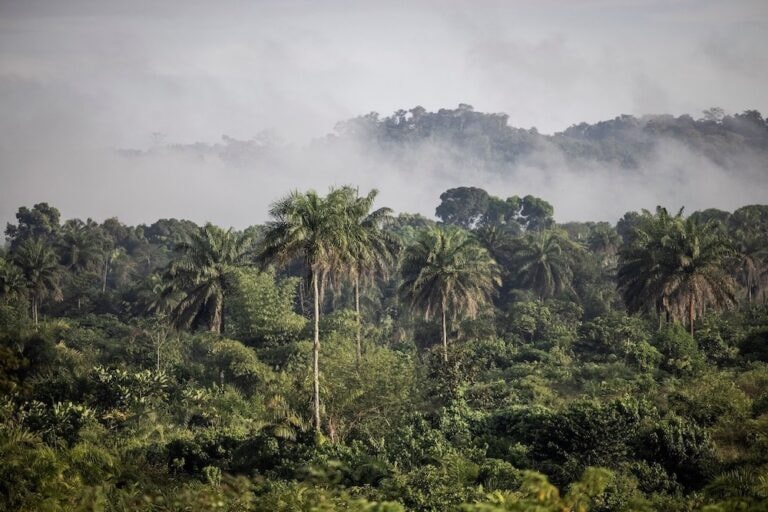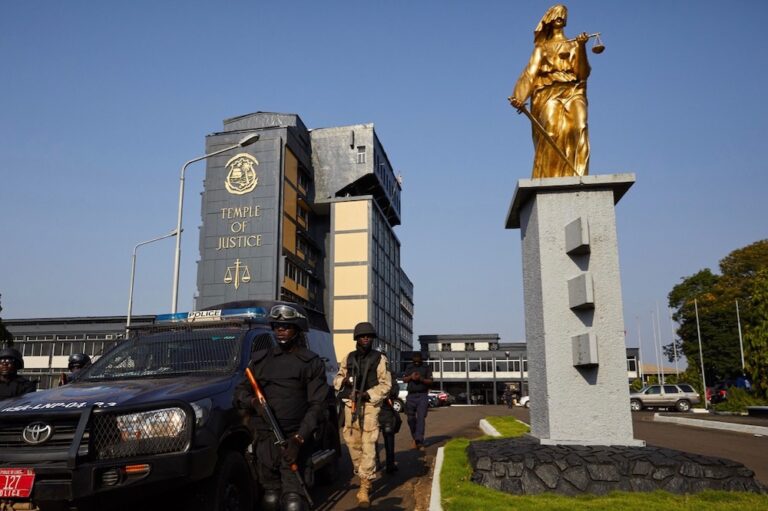This is the fourth of such reports, and comes at a crucial point in Liberian history, when there is a great need for news that is impartial, fair and independent.
(CEMESP/IFEX) – Monrovia, March 14, 2011 – The Center for Media Studies & Peace Building (CEMESP) is pleased to present its annual report, “Strengthening Freedom to Further Democracy in Liberia – Attacks on Freedom of Expression – 2010”. It outlines deliberate actions by government and other actors that obstructed freedom of expression in Liberia.
This is the fourth of such reports, and comes at a crucial point in Liberian history. This period [2011] requires a greater need for the dissemination of news and information to be impartial, fair and independent.
We are drawing attention to these shortcomings especially because the 2010 state of free expression does not speak of variety in ideals and speech. We will note here that the transgressors attacked virtually every means of media – including community radio, hacked news websites, harassed television stations, subjected newspapers and editors to intimidations, and assaulted journalists. The perpetrators of these acts included such high officials as the Mayor of Monrovia, and surprisingly included significant civil society actors like the President of the Federation of Liberian Youths.
These actions were committed against the backgrounds of indications that more sophisticated and deliberate means were used to limit the free exchange of news and information. We however noticed that the space for expression improved significantly, especially with the passage of the freedom of information act.
In line with this development, the 2010 report entitled: “Strengthening Freedom to Further Democracy in Liberia – Attacks on Freedom of Expression 2010”, recounts actions that furthered the space for free expression and freedom of the Press in Liberia.
Therefore, as we head to the first opportunity for the transition from one civil government to another in more than half a century, we believe there must be a space that will permit media, civil society, think tanks and opposition politicians to openly and freely discuss the issues that affect the elections.
At CEMESP our task is to expose the means through which people are denied that ultimate right to express themselves, and to suggest means through which we can all use this right to freely express ourselves and help improve the situation in Liberia.
We are of the conviction that Liberians still have the right to freely express themselves, and must join the advocacy to challenge any and all actions that deny the facilitation of this right.
Once again, we express our appreciation to the National Endowment of Democracy (NED) that has graciously supported our work within this realm, as well as the International Freedom of Expression Exchange (IFEX), which has been the main source of facilitation and guidance of this process. Locally, we appreciate the collaboration and cooperation of the Liberia Freedom of Expression Coalition, which has provided moral guidance and solidarity to this effort.
Finally, we will note that the notes gathered so far during this year on freedom of expression do not indicate that there will be a better situation when we draw the curtain in December, or even when the elections come up. The challenge is facing all Liberians. We must firstly recognize that each of us has a fundamental right to freely express ourselves, regardless of the shade of our opinions and ideals we cherish, and we must individually and collectively stand up to guarantee this right for each other.
Let us stand in the shadow of 20th Century author and ideologue Noam Chomsky, who proffers: “If you believe in freedom of speech, you believe in freedom of speech for views you don’t like.”
On this note, we would like to announce the launch of the Annual Report of the Center for Media Studies & Peace Building (CEMESP), highlighting the state of freedom of expression in Liberia across the year 2010.
We would also like to use this opportunity to launch our “Access to Information Research and Monitoring in Liberia” Report. This report is in two parts.
The objective of this research and monitoring exercise, which was conducted in 2010, is grounded on the worldwide recognition that access to information is indispensible to the protection of human rights and the promotion of sustainable development.
The first part of the report identifies and analyses the scope and application of the Liberian Laws that support access to information and those that hamstring access to information; the second part of this report is principally focused on testing the system, by assessing the extent to which the Liberian Government Ministries and agencies provide for the right to access to information.
A total of 12 people were trained on making access to information requests and deployed to 13 institutions. A total of 52 requests were made.


